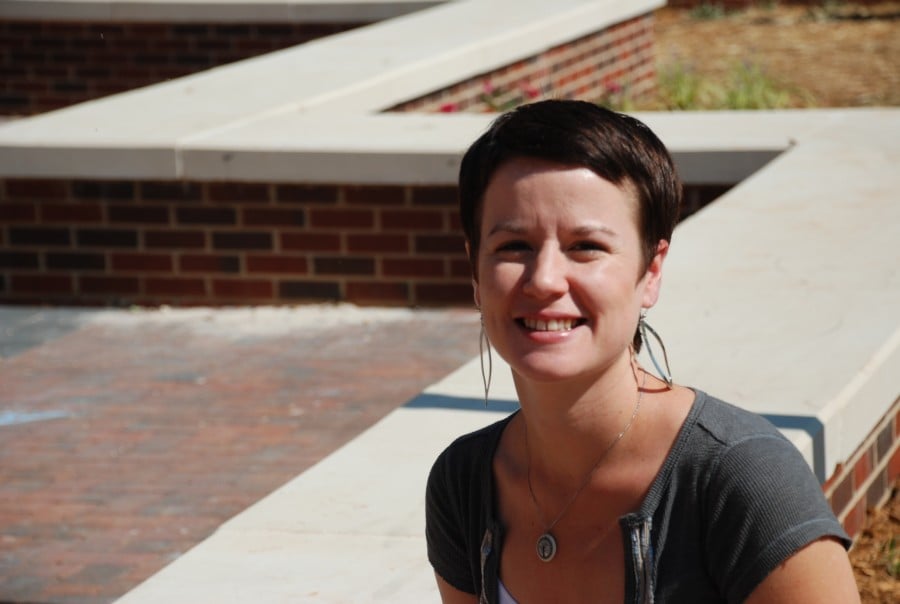There are crazy contraptions on the roof tops, dual flush toilets, and no take-out cups for coffee in the cafeteria. Where are the trays to put my food on? Why are students carrying boxes of produce out of the Greenleaf?
My initial response to these questions was frustration, but then Solarpalooza, a perfect solution to my frustration, came along.
Those crazy contraptions are solar panels, the other answers come down to water and waste conservation.
The tables that outlined the gym covered these subjects and then proceeded to showcase people such as Merritt White, from Re:cycles, who shared tips on how to repair my bike tire or Alison Dee who gave out her recipe for vegan granola bars.
Guilford is all about experiential learning and this event gave students a way to learn in a fun manner about another key goal of the college — sustainability.
The background music for this event was very fitting. “Southern Exposure,” a bluegrass band, picked at their instruments. Their music page explains their approach to music: “Renewable music thru acoustic energy.”
Energy was a very important aspect of this shindig. I could feel it in the fresh food I ate, the smiling faces of those surrounding me and the music that made me want to dance on the earth that this event is trying to protect.
As for the produce in boxes, I needed to become acquainted with the co-ops around me.
If you, like me, want to move back to the farming ways of the past, to rekindle a connection with the food you eat, these are the best ways to do it. The Greenleaf has wonderful options for students.
One table featured a man in overalls and a straw hat named Daniel Woodham. He is a Community Supported Agriculture (CSA) farmer who knows his produce.
“We are not just money for vegetables CSA,” said Woodham. “It’s a model that deepens the relationship with the land and farmers: it has them involved in the picking process.”
A lot of us may think vegetables come from the grocery store and forget the earthy process it went through to get on those shelves. I am reminded that at one time, I knew exactly where my food was grown.
I lived in Costa Rica for four months and grocery stores were few and far between, but open markets were at my fingertips. The produce I picked out would still have traces of the soil from the pesticide-free land it came from. The person I gave my money to would have that same soil under their fingernails.
Whether I am in a foreign country or on my own soil, one key difference in buying in this more intimate manner is the price of the produce. It seems very odd that we as a nation value expensive grocery stores more than farmers markets. This choice weighs on our purses and severs an important connection to us and our food.
Since saving money is a huge aspect of most of our lives, try it yourself. Take $20 with you to a farmers market or co-op and then try it at a grocery store. I am sure you will most likely walk out with more bags of goodies as you leave the farmers market or co-op.
I came into the Solarpalooza with $10. I walked out with a bag of peaches and Kale, but with $5 still in my wallet.
I stepped out of the event with a grin, most likely peach juice on my face and my arms happily weighed down by groceries. The feeling of frustration that I started with was replaced by a deeper understanding of our mission as a school and as human beings protecting this Earth we have so badly treated.

